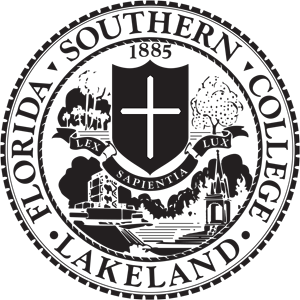
Retooled Film Program Promotes Creativity, Community through Remote Instruction
Apr 8, 2020

Students in Florida Southern’s film program were starting pre-production work on their spring semester projects when the College ended face-to-face classroom instruction in mid-March. The accompanying switch to a remote-learning environment presented distinct challenges for a program that focuses as much on creative interaction as on the various technical aspects of filmmaking.
Said Matthew Herbertz, assistant professor of film: “What I teach is so hands-on and collaborative, it was difficult when we moved online. I wanted to make sure students were getting as much creative inspiration as possible.”
Herbertz realized that some homebound students would encounter technological difficulties and personal distractions. While developing new projects that could be accomplished remotely, he prioritized goals such as keeping students engaged, connected, and positive, rather than emphasizing the evaluation and grading of their work. He also made himself as available as possible through Zoom video conferencing.
“What’s important to me — and what’s so special about Florida Southern — is the individualized interaction between students and faculty. My job was to create a sense of community,” Herbertz said.
One of the replacement projects he introduced, which is based entirely on archival “found footage,” requires students to create film mashups using clips produced by someone else. Each of the finished mashups should impart a fresh message or give new meaning to the pre-existing footage.

Herbertz provided a film educators’ resource list to help students access a wide selection of material from library archives and other online sources, ranging from old movies and newsreel footage to TV programs and YouTube videos.
In another ongoing assignment, students from his Motion Picture Productions class are required to write, direct, and capture a short film that takes place only on digital screens. Working long-distance, the students are collaborating in pairs to develop their stories and share project files. Script submissions for these “screen capture” films are using the conceptual framework in a variety of genres, from romantic comedies to a thriller.
For example, film students Ross Craven and Caitlin Hall, both of whom are juniors in the BFA program, have teamed up to produce a script dealing with online privacy and fears about security in our digital age. They are embracing the challenge of creating a story that takes place entirely on screens.
“We can communicate easily, but our environments have changed,” Craven said. “Luckily, I have done screen recording projects in the past. Sitting in front of a computer for classes all the time now has inspired how we may want to ‘shoot’ this project. I get to look at my ‘set’ all day.”
Said Hall: “I’ve found that we’re not limited by the equipment or resources we have as filmmakers, we’re only constrained by how we choose to be creative. Many of the projects I’ve completed would have felt impossible without the unwavering support that Professor Herbertz gives to his students. He keeps us on our toes.”
Herbertz is also organizing Zoom conversations and Q&A sessions with established film professionals.
"Zoom allows for long-distance conversations, and they’re actually easier to coordinate in this situation,” he said. “People seem to have the time, so we’re taking advantage of that."
Guest speakers have included Andy McEntire, founder of Lakeland-based Indie Atlantic Films, and Shelby Hadden, a writer, producer, and documentary filmmaker who lectures at Texas State University.
McEntire, whose company creates commercial and branded work as well as original documentary and narrative films, talked with the Motion Picture Productions class about post-graduation job opportunities, resumé building, and self-marketing.


Hadden discussed her experiences as an independent filmmaker, producer, and activist. Her animated short film “Tightly Wound” has screened at film festivals around the world and has been picked up for distribution by Condé Nast.
“Just make something,” Hadden told FSC’s film students. “Make anything. Even if it’s ‘just’ a podcast. As long as you are always creating, writing, producing. Just keep making, so that you always have something to talk about with people. Find what you are passionate about and do everything you can to be heard.”
Another key element of FSC’s film program, the annual Southern Reel Film Showcase, will be presented as a live-streaming event in late April.
For the past two years, the festival-style screening of student work — with judging by an outside filmmaker — had revolved around a live screening at the Polk Museum of Art. By switching to a online format, Herbertz hopes to reach an even larger audience of students, family, and friends, in addition to local film fans.